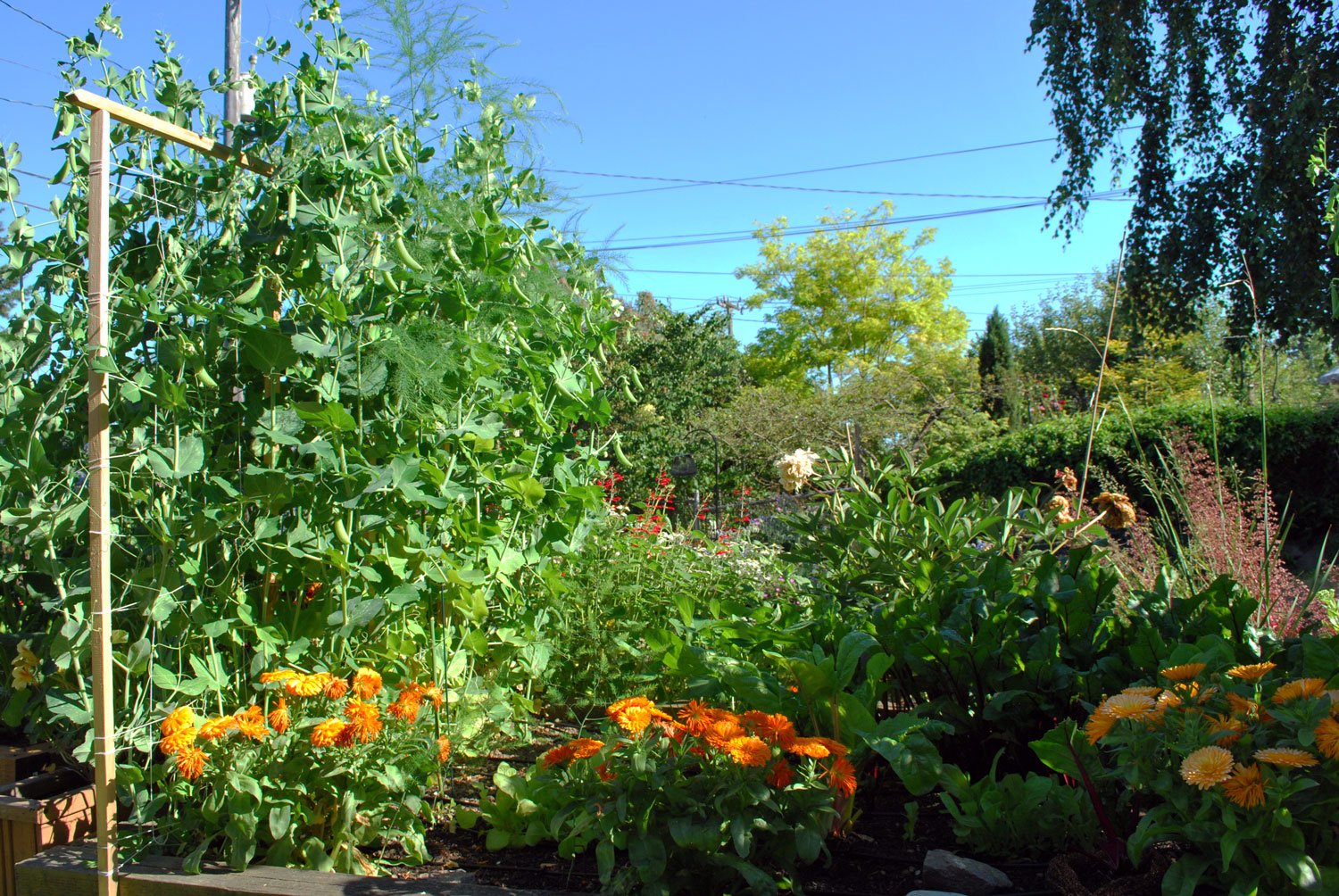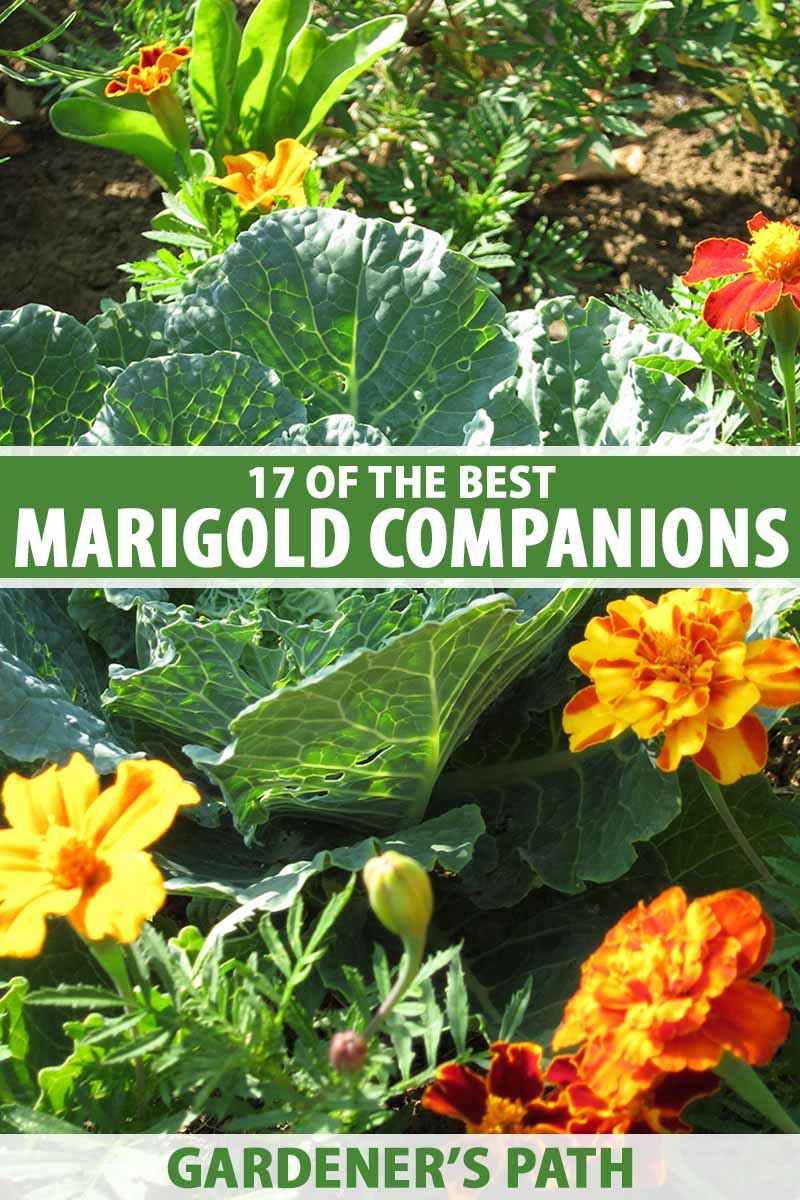Best Companion Plants For Squash
Introduction
Squash is a delicious and versatile vegetable that can be enjoyed in many different ways. Whether you like it roasted, grilled, or cooked into a soup, squash is a great addition to any meal. But did you know that there are certain plants that can help your squash plants grow better?
Companion planting is the practice of planting certain plants together to benefit each other. By planting the right companion plants with your squash, you can improve their growth, deter pests, and boost their flavor.
In this blog post, we will discuss the best companion plants for squash. We will also cover some of the benefits of companion planting and how to choose the right plants for your garden.
Main Content
What are Companion Plants?
Companion plants are plants that benefit each other when grown in close proximity. They can do this in a variety of ways, such as:
- Attracting pollinators: Some companion plants attract pollinators, such as bees and butterflies, which help to pollinate squash flowers. This is essential for fruit production.
- Reducing pests: Other companion plants release chemicals that repel pests, such as marigolds and nasturtiums. This can help to protect your squash plants from damage.
- Improving soil quality: Some companion plants, such as beans and peas, fix nitrogen in the soil. This can help to improve the nutrient content of the soil and make it more productive for your squash plants.
- Providing shade: Some companion plants, such as sunflowers and corn, can provide shade for your squash plants. This can help to protect them from the hot summer sun and keep them cooler.
The Best Companion Plants for Squash
There are many different companion plants that can benefit squash plants. Some of the best include:
- Beans: Beans are a classic companion plant for squash. They fix nitrogen in the soil, which helps to improve its nutrient content. Beans also provide shade for squash plants, which can help to protect them from the hot summer sun.
- Corn: Corn is another good companion plant for squash. It provides support for vining squash varieties, and its tall stalks help to block the wind. Corn also attracts pollinators, which helps to pollinate squash flowers.
- Marigolds: Marigolds are a great companion plant for squash because they repel pests. They release chemicals that deter insects such as aphids, whiteflies, and squash bugs.
- Nasturtiums: Nasturtiums are another good choice for a companion plant for squash. They also repel pests, and they can help to improve the flavor of squash.
- Dill: Dill is a beneficial companion plant for squash because it attracts pollinators. It also helps to improve the flavor of squash and deter pests.
- Potatoes: Potatoes are a good companion plant for squash because they help to suppress weeds. They also release chemicals that can help to protect squash plants from diseases.
- Peas: Peas are another nitrogen-fixing plant that can benefit squash plants. They also help to improve the drainage of the soil, which can help to prevent squash plants from developing root rot.
- Sunflowers: Sunflowers are a good companion plant for squash because they provide shade and attract pollinators. They can also help to improve the drainage of the soil.
How to Choose the Right Companion Plants for Your Garden
When choosing companion plants for your garden, it is important to consider the following factors:
- The size of the plants: Some companion plants, such as corn and sunflowers, can grow quite large. Make sure to choose companion plants that will not outgrow each other.
- The sunlight requirements: Some companion plants, such as squash, need full sun. Make sure to choose companion plants that have similar sunlight requirements.
- The soil conditions: Some companion plants prefer sandy soil, while others prefer clay soil. Make sure to choose companion plants that will thrive in the same soil conditions as your squash plants.
- The pests and diseases that are common in your area: If you know that there are certain pests or diseases that are common in your area, choose companion plants that can help to deter or control them.
Conclusion
Companion planting is a great way to improve the growth, health, and flavor of your squash plants. By planting the right companion plants, you can boost your harvest and reduce your workload.
If you are new to companion planting, start by planting a few of the companion plants that we have listed in this blog post. You will be surprised at how much of a difference they can make in your garden.
Squash is a delicious and versatile vegetable that can be enjoyed in many different ways. But did you know that there are certain companion plants that can help your squash plants thrive?
Some of the best companion plants for squash include:
- Beans: Beans are nitrogen-fixing plants, which means they can help to improve the soil quality for your squash plants. They can also help to shade the soil and keep it cool, which is beneficial for squash plants.
- Corn: Corn is another nitrogen-fixing plant that can benefit your squash plants. It can also help to provide a trellis for your squash plants to climb, which can save space in your garden.
- Sunflowers: Sunflowers can help to attract beneficial insects, such as ladybugs and lacewings, which can help to control pests that damage squash plants. They can also help to provide shade for your squash plants in hot weather.
- Marigolds: Marigolds can help to repel pests, such as nematodes and squash bugs. They can also help to improve the drainage in your soil, which is beneficial for squash plants.
For more information about companion plants for squash, please visit Garden Wiki. This website has a wealth of information on the topic, including a list of specific plants that are good to grow near squash, as well as tips on how to plant and care for your companion plants.
FAQ of companion plants to squash
- What are some good companion plants for squash?
Some good companion plants for squash include:
- Beans: Beans are nitrogen-fixing plants, which means they can help to improve the nitrogen content of the soil for your squash plants. They also help to suppress weeds and attract beneficial insects.
- Corn: Corn provides shade for squash plants and helps to improve air circulation, which can help to reduce the risk of pests and diseases.
- Lettuce: Lettuce is a quick-growing crop that can be planted in between squash plants. It helps to suppress weeds and also provides a good source of food for beneficial insects.
- Marigolds: Marigolds are known for their insect-repelling properties. They can help to deter pests such as squash bugs, beetles, and nematodes.
- Nasturtiums: Nasturtiums are another insect-repelling plant that can be planted near squash plants. They also attract beneficial insects such as ladybugs and hoverflies.
- What plants should I avoid planting near squash?
Some plants that you should avoid planting near squash include:
- Brassicas: Brassicas, such as broccoli, cabbage, and cauliflower, are susceptible to the same pests and diseases as squash. Planting them near each other can increase the risk of these problems.
- Potatoes: Potatoes are susceptible to a fungus called verticillium wilt, which can also infect squash plants. Planting them near each other can spread the disease.
- Melon
- How do companion plants benefit squash plants?
Companion plants can benefit squash plants in a number of ways, including:
- Attracting beneficial insects: Some companion plants, such as marigolds and nasturtiums, attract beneficial insects such as ladybugs and hoverflies. These insects help to control pests that can damage squash plants.
- Improving soil quality: Some companion plants, such as beans and peas, are nitrogen-fixing plants. This means that they can help to improve the nitrogen content of the soil for your squash plants.
- Suppressing weeds: Some companion plants, such as lettuce and radishes, can help to suppress weeds. This frees up your time and energy so you can focus on other gardening tasks.
- Providing shade: Some companion plants, such as corn and sunflowers, can provide shade for squash plants. This can help to protect them from the hot sun and reduce the risk of heat stress.
- How far apart should I plant squash and its companion plants?
The exact spacing requirements for squash and its companion plants will vary depending on the specific varieties you are planting. However, as a general rule of thumb, you should plant squash plants at least 2 feet apart and companion plants at least 1 foot apart. This will give them enough room to grow and thrive.
- What are some other benefits of companion planting?
In addition to the benefits listed above, companion planting can also:
- Reduce the need for fertilizers and pesticides: By attracting beneficial insects and suppressing weeds, companion planting can help to reduce the need for fertilizers and pesticides. This can save you money and reduce your impact on the environment.
- Increase crop yields: Companion planting can help to increase crop yields by providing a more balanced and healthy ecosystem for your plants.
- Improve the overall health of your garden: Companion planting can help to improve the overall health of your garden by attracting beneficial insects, suppressing pests and diseases, and improving soil quality.
Image of companion plants to squash
- Beans: Beans are a great companion plant for squash because they help to fix nitrogen in the soil, which is beneficial to squash plants. They also help to shade the soil, which can help to prevent powdery mildew and other fungal diseases.

- Borage: Borage is a flowering herb that is a natural insect repellent. It can help to deter pests such as squash bugs, cucumber beetles, and spider mites. Borage also attracts beneficial insects such as pollinators and ladybugs.

- Cosmos: Cosmos is a tall, daisy-like flower that is another natural insect repellent. It can help to deter the same pests as borage. Cosmos also attracts beneficial insects and helps to improve the overall health of the garden.

- Dill: Dill is a fragrant herb that is known to attract pollinators such as bees and butterflies. It also helps to repel pests such as aphids and spider mites. Dill can also help to improve the flavor of squash.

- Nasturtiums: Nasturtiums are colorful flowers that are another good companion plant for squash. They help to attract pollinators and deter pests such as aphids and squash bugs. Nasturtiums can also be used as a trap crop, which means that pests are attracted to them and away from your squash plants.

Post a Comment for " Best Companion Plants For Squash"